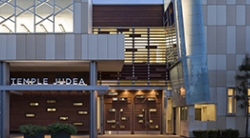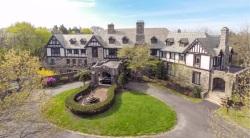
The mind is a strange and wonderful thing. It is a complex, living and changing phenomenon that we all share. Some minds are more extraordinary than others. They exhibit traits that tend toward one or the other end of the mind spectrum, being either gifted or challenged. Sometimes it is both.
This is the dilemma and paradox of gifted children who are diagnosed with Attention Deficit (ADD, ADHD) or Autism. These children are often called “twice blessed.” They are gifted but also have learning disabilities. Understanding, treating and supporting this child is difficult and challenging to parents and teachers as the child progresses through schools and matures into adulthood.
The Paradox in School
Gifted children with special needs can have a difficult time in school environments. Because they are gifted, there are high expectations for their performance. But because they are also challenged, they appear to be distracted, uninterested, lazy, procrastinating, or unmotivated. Their disability disguises their giftedness.
It is hard to see the disability especially if the child does not act out or cause disruption in the class. Parents don’t usually think their children have any disabilities since they appear to be so bright.
It is a real challenge for parents to select the right schools that can accommodate and support children who have the combination of giftedness and ADD.
Different Types of ADD
There are three basic types of ADD. The first is inattentive, showing lack of interest or focus. The second is impulsive or hyperactive. The third is a combination of both inattentive and hyperactive.
There are tests to determine whether a child has the Combined Type ADHD (ADD). There are nine criteria for each single type, and a child must exhibit at least six of the nine traits in each area as well as show impairment in functioning to have the combined diagnosis.
In addition, the symptoms must show up in different settings or environments, exist for at least six months, and have started before the age of seven. The impairment in functioning must be seen as significant.
Treatment can be Complex
Research suggests that both the giftedness and the disability should be given attention during treatment. The talent should be developed while treating the disability. This creates some possible problems for educators and care-givers.
Typical interventions for ADD/ADHD children suggest a shortening of work time and simplification of tasks. It is also recommended to reduce stimulation.
Gifted children with ADD/ADHD, on the other hand, tend to like complexity and like to work in a highly energized and stimulated environment. They are more intense.
These competing parameters make it difficult to create the right learning environment for the gifted child with ADD/ADHD.
 What Parents can do for Gifted Children with ADD
What Parents can do for Gifted Children with ADD
What are some of the things parents can do who think their child is both gifted and has ADD? The first thing is to have their child tested by a professional who deals with both giftedness and ADD.
They should learn more about ADD and discuss the disease with their child. There are many issues that can be affecting school life including incomplete homework or postponement of projects, etc. that may be explainable in terms of ADD.
Parents should stress the positive aspects of “twice blessed” including energy levels, ability to focus, creativity, and thinking “outside the box.”
Giftedness and Autism
Autism Syndrome Disorder (ASD) is characterized by dysfunctionality in verbal or nonverbal communication, social interaction, and repetitive behaviors. It is also often associated with intellectual disability and problems with motor coordination.
Giftedness and autism share similar behavioral characteristics. Children in either category can exhibit an obsession with facts or details, or with some area of special interest. They can become experts in some field. They may also have trouble with relationships and interacting with peers.
Research has shown that seventy-five percent of people with autism score 70 or lower on intelligence tests. This classifies them as intellectually disabled.
But interestingly, research also shows a remarkable similarity between autism and genius or giftedness. Both autistic and gifted children were found to have exceptional working memories, far beyond those of average intelligence.
Child prodigies often show autistic traits like strong attention to, or obsession with, detail. Some research has shown that gifted children score even higher on this trait than those with Asperger’s Syndrome, a form of autism.
What Parents can do for Gifted Children with Autism
The suggestions for parents of gifted children with autism are similar to those mentioned earlier for parents of ADD children. Start by discussing the combination of giftedness and disability with your child.
If a twice-exceptional child has a strong interest in some field, the parents should show an interest in this field, allowing the child to explore and develop knowledge in it. Parents can expand the child’s knowledge by encouraging a branching out into different but related areas.
If the child has trouble with the general population of students and peers, parents should try to help with socialization skills. Introducing the child to other gifted children will increase comfort levels as well.
Gifted and autistic children are not interested in imaginary play. They think more literally. They may not be interested in team sports but would like instead to do individual activities like swimming or biking.
Working with school teachers and officials, parents can participate in the kind of individual development plan needed for their child.
Final Thoughts
The first thing to do is to fully understand that your child has both a gift and a disability, and that you need to learn as much as you can about both. Sharing what you learn with your child should be next, as well as sharing with family and with school personnel.
Consulting with professionals is important, too. Assessments for giftedness and for disabilities like ADD/ADHD and autism should be carried out by specialists in those fields.
There are medications available to help with symptoms like hyperactivity and inattention. And there are behavioral treatments. Medical professionals should be involved to direct any individual programs for your child.
Parents can help structure the home environment to better support the twice blessed child. You can provide organizational tools, break up homework time into smaller segments, reward positive performance, and assist your child in setting personal goals.
Your child is exceptional. He or she needs an exceptional parent.






